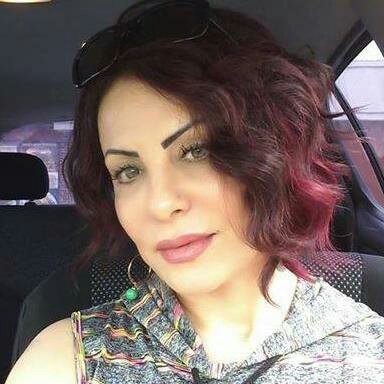
Written by guest blogger Kaziwa Salih.
Language is the power of the soul, the vision of the mind, and the passport of the ideas and culture that form the identity of the speaker. Although their language is one of the 40th languages in the world, Kurdish populations have been living in severe crises and traveling without passports as consequences of linguicide.
The Kurdish language is divided into four major dialects and a few sub-dialects. One of them is the “Sorani” dialect. The Kurds in the central part of Kurdistan, the Kurds in Iraq and Iran mainly speak the Sorani dialect. It consists of several sub-dialects, among them Wermaw, Píraní, Mukrí, Ardalani, Laki, and Germíyaní.
Kermancî is the second dialect, spoken by the Kurds in Bakur, Rojava or Turkey, and the Kurds in Syria, Lebanon, Georgia, Armenia, Russia and Turkmenistan. According to the Kurdish Academy of Language, the major subdialects of the Northern Kurdish dialect group are Adyamani (or Marashi), Bekraní, Bírjendí, Botaní, Bayezídí, Hekkarí, Jiwanshírí, Qocaní, Senjarí, Urfí, Yunekí (or Judíkaní), and Surcí. Bahdini is also a branch of the Kurmanci dialect. The Kurdish population who live in Dihuk and Zakho in Kurdistan speak Bahadini.
The Pehlewaní or “Pahlawanik” dialect consists of the Dilimi, also called Zaza, and Gurani, also called Hewrami, sub-dialects. It is mainly a southern Kurdish dialect. Finally, Lur is spoken by Kurdish groups in Iran. However, in each region, there is a group of people who speaks each of these various sub-dialects. Most of the Kurdish population speak Kurmanci and the second largest number speak Sorani. The Kurmanci Kurdish dialect is written in the Latin script, while the Sorani Kurdish dialect uses the so-called Arabic script.
The division of the Kurds according to sub-linguistic foundations in the second millennium was related to influence and administrative power; the majority of the Kurdish population had spoken those four Kurdish dialects, and under each branch, several sub-branches or Kurdish linguistic groups could communicate easily. Likewise, before the emergence of the modern nation-state, people organized and were administered under their tribe’s name and religion, but the Kurds did so under tribes and linguistic branches.
Because of the long history of Kurdish persecution, linguicide, and cultural genocide by Turkey, Iraq, Iran and Syria, most Kurdish populations, especially in Turkey, Iran and Syria, do not speak, write or read Kurdish fluently. Furthermore, due to the forcible isolation of the Kurdish groups, to the present day, the Kurdish population cannot speak all the Kurdish dialects. The speakers of one dialect do not understand those of another. To an extent, most of the time, the language of the host country post-migration becomes a medium of communication between the Kurdish diasporas.
Many, including the Kurds themselves, believe that the linguicide stage ended with the collapse of the Ba’ath party in Iraq. However, linguicide and the denial of the Kurdish language were not produced by any one specific political power or period. In Turkey, Iraq, Iran, and Syria, they have now been adopted by one authority after another for a century. Although after the collapse of the Saddam Hussein regime, the Kurdish language became one of the two official languages of the state in Iraq, along with Arabic, as recently as June 2020, the Iraqi Prime Minister Mustafa al-Kadhimi, whom President Trump expected to stabilize Iraq and future US-Iraqi relations, removed the Kurdish language from Iraqi official documents.
On 23 May, 2019, a Kurdish language teacher, Zahra Mohammadi, was sentenced to 10 years in prison in Iran for teaching Kurdish literature. At the trial, her crime was claimed to be teaching her mother tongue to children and distributing chocolates on Mother Tongue Day. In 2008, having found linguistic freedom after decades of state suppression, dozens of children were murdered as both the Syrian and Turkish regimes attacked elementary schools in Rojava, Syria. In 2015, the Turkish state shut down scores of Kurdish media organizations, cultural institutions and language schools that had been allowed to exist only since 2013.
Language is a tool of unification. It unites people, strengthens culture, establishes identity and stabilizes the psychological states of individuals. Thus, the colonizers of Kurdistan and the oppressors of the Kurds were always determined to perpetuate Kurdish linguicide and the persecution of individuals who speak their mother tongue or attempt to protect the Kurdish language.
Kaziwa Salih, Ph.D., is scholar of cultural sociology and genocide studies. She is the award-winning author of several books in the Kurdish language.
Her latest chapter is “Eazidi Women’s Practices of Empowerment and Capital Formation Following Enslavement by ISIS,” Handbook of Research on New Dimensions of Gender Mainstreaming and Women Empowerment, Moly Kuruvilla and Irene George (ed.), pp. 487–508: https://www.igi-global.com/chapter/eazidi-womens-practices-of-empowerment-and-capital-formation-following-enslavement-by-isis/255631
Her latest article in Genocide Studies International entitled “Kurdish Linguicide in the “Saddamist” State” is free to read for a limited time here.
The UTP Journals blog features guest posts from our authors. The opinions expressed in these posts may not necessarily represent those of UTP Journals and their clients.
Comments on this entry are closed.